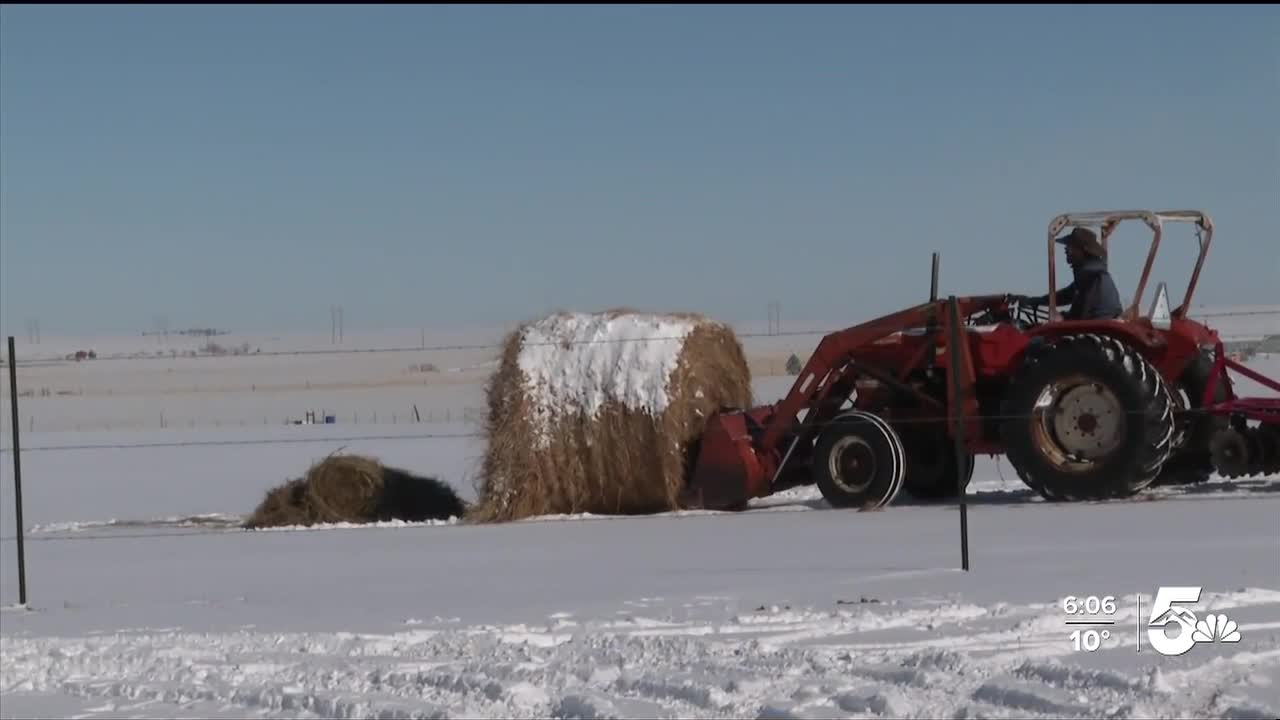YODER, Colorado — There is little refuge for ranchers when extreme cold hits this time of year. On Valentine’s weekend It dropped below negative 20 at the Keiter property in Yoder, Colorado. There was little time inside by the fire. Instead, the family has livestock needing attention. “These cattle don’t care what the weather’s like, they need tending to and that’s what our job is as ranchers and farmers,” said Rancher, Chance Keiter
It is not just dad. Wearing her coveralls, elementary age Averi Keiter feeds a rescued calf multiple times a day. "His mom doesn't want him," said Averi. The calf named Mikey now lives in a pen a short distance from the house.
Mikey’s rescue is just one of many calf stories happening as Colorado temperatures hit record lows. Late February and early March are calving season in Colorado. "You think about a fresh baby coming out of the womb soaking wet and it hits negative 20 degrees weather, it can be instant, you've got to be on it," said Chance. Calves do fine when cold is typical; it is life threatening when temperatures hit sub-zero.
Over the past couple of extreme cold days the Keiters have heard many sad and harrowing calf rescue stories from family and friends who also ranch. At a family member’s ranch the cold killed. "He lost a mom and a calf. The mom was giving birth and she ended up freezing to death and lost the calf at the same time," said Chance
If it is freezing and a cow wanders away, even a short distance after giving birth, a calf can freeze to the ground. Chance remembers growing up and sometimes bringing calves into the house and keeping them in the bathtub overnight. "I've got friends they're calving right now and threw calves in the front seat of their brand new pick-up,” said Chance, “It doesn't matter; when a calf hits the ground, if they need it, we're there." That often means getting up multiple times through the night to see if any calves have been born.




